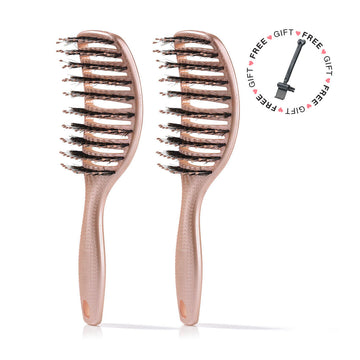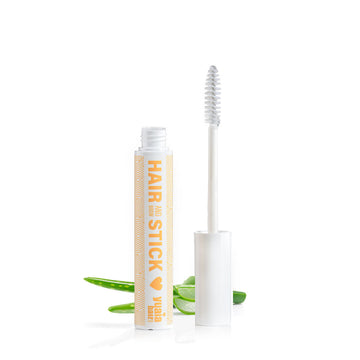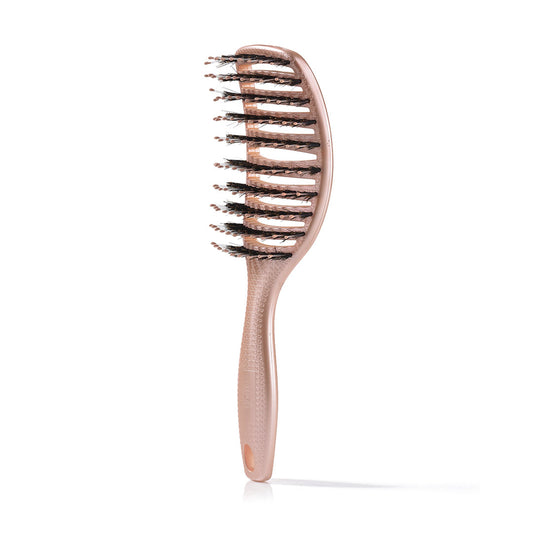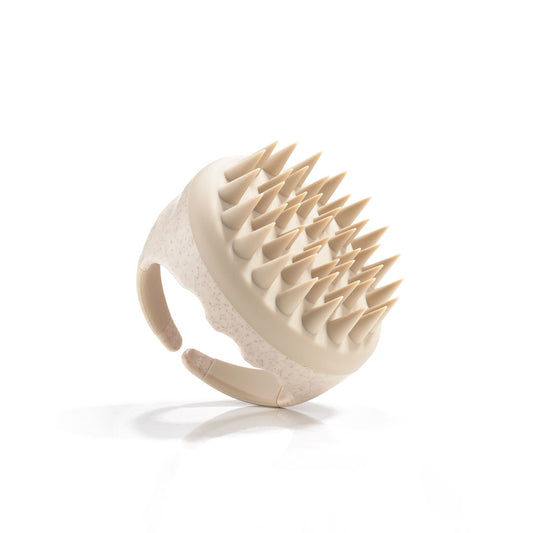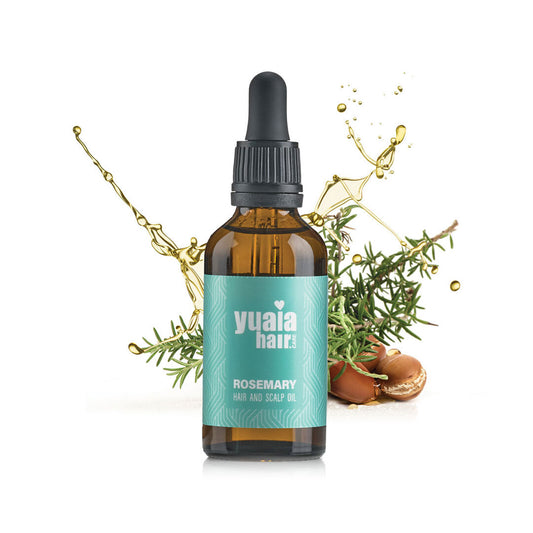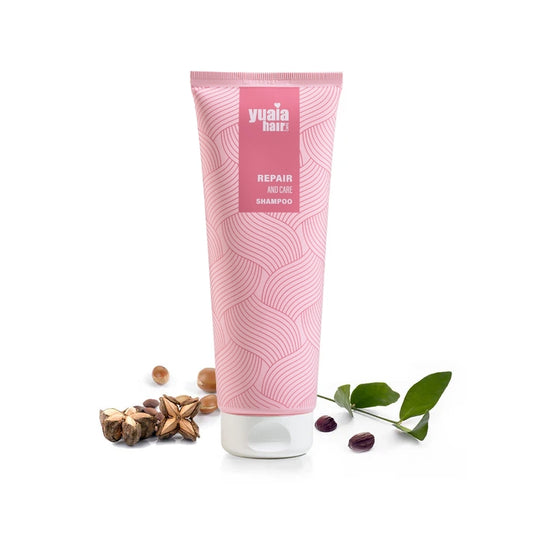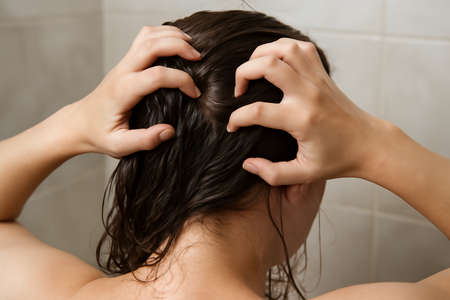
Why Understanding the Cause is Important
Identifying the underlying reasons for an oily, itchy scalp is important for managing the condition effectively. Multiple factors, including sebaceous gland activity, fungal presence, and even lifestyle influences, contribute to this issue. By gaining insight into these causes, you can tailor your haircare routine to alleviate symptoms and maintain a healthier scalp environment.
For instance, using the right tools can make a significant difference. A brush that helps distribute natural oils evenly across your scalp can be beneficial. Our curvy brush is made to gently detangle and help manage oil distribution without causing further irritation.
In the following sections, we'll explore the specific causes of an oily, itchy scalp and provide practical solutions to help you achieve a balanced and comfortable scalp. Stay tuned to uncover the surprising reasons behind this common problem and learn how to manage it effectively.
What Causes an Oily, Itchy Scalp?
The discomfort of an oily, itchy scalp often stems from the overproduction of sebum, the natural oil produced by sebaceous glands. This excess sebum not only creates a greasy feel but also sets the stage for other issues. When sebum accumulates, it can trap dirt and debris, providing a perfect environment for microorganisms to thrive. This buildup can lead to clogged pores, further exacerbating irritation and itchiness.
Dandruff and Malassezia Fungus
A common culprit behind an itchy, oily scalp is dandruff, frequently linked to the Malassezia fungus. This fungus flourishes in oily conditions, breaking down sebum into byproducts like oleic acid. For those sensitive to these substances, inflammation and persistent itching can occur. Understanding this connection highlights the importance of managing both oil levels and fungal activity for scalp comfort.
Seborrheic Dermatitis
Seborrheic dermatitis is another condition tied to oily scalps, characterized by red, inflamed patches and oily flakes. This skin condition is often associated with both excess oil production and fungal growth. The presence of greasy, yellowish scales on the scalp can be particularly bothersome, leading to significant itchiness and discomfort.
The Role of Clogged Follicles and Poor Scalp Hygiene
Excess oil on the scalp can trap dirt and dead skin cells, potentially clogging pores. This not only leads to further irritation but can also increase the risk of secondary infections. Maintaining good scalp hygiene is crucial to prevent these issues, as regular cleansing helps remove excess oil and debris, reducing the likelihood of clogged pores.
Stress and Hormonal Factors: Hidden Influences
Stress and hormonal imbalances can significantly impact scalp health, often exacerbating oil production. During times of stress, the body may produce more sebum, leading to a greasier scalp and increased itchiness. Additionally, hormonal fluctuations, such as those experienced during puberty or pregnancy, can alter sebum production, contributing to an oily scalp.
For those looking to manage an oily, itchy scalp, incorporating effective haircare products can make a difference. Our rosemary hair oil is a great option, offering a blend of nourishing ingredients that can help balance oil production. By applying a few drops to the scalp and massaging gently, you can enhance blood circulation and promote a healthier scalp environment.
In the next section, we'll delve into practical solutions and frequently asked questions to help you effectively manage an oily, itchy scalp and achieve lasting comfort.
Effective Methods to Manage an Oily, Itchy Scalp
Dealing with an oily, itchy scalp can be challenging, but adopting the right strategies can provide relief and restore balance. Here are some effective methods to consider:
Scalp Hygiene Practices
Maintaining good scalp hygiene is essential. Regular cleansing with gentle, sulfate-free shampoos can help remove excess oil and debris without stripping your scalp of its natural oils. It's important not to over-wash, as this can lead to increased oil production. Instead, find a washing routine that suits your scalp's needs.
Balancing Oil Production
Using plant-based products containing ingredients like tea tree oil or witch hazel can help maintain a balanced scalp environment. These natural ingredients are known for their soothing properties and can assist in managing oil levels effectively. Additionally, incorporating products that promote a healthy scalp, such as our rosemary hair oil, can enhance your routine.
Lifestyle Adjustments
While external factors play a significant role, internal factors like stress can also impact scalp health. Managing stress through relaxation techniques and ensuring a balanced lifestyle can support overall skin health. By addressing these aspects, you can contribute to a healthier scalp environment.
Frequently Asked Questions
Why does my scalp itch more in hot weather?
Hot weather can increase oil production on the scalp, leading to a greasy feel and exacerbating itchiness. The combination of heat and sweat creates an environment where microorganisms thrive, contributing to discomfort.
Can using oil help an oily scalp?
While oils can be beneficial for some scalp types, applying oil to an already oily scalp may be counterproductive. It can trap dirt and exacerbate fungal growth, leading to more severe itching and flaking.
Is dandruff always caused by an oily scalp?
No, dandruff can occur on both oily and dry scalps. Oily dandruff is often linked to excess sebum and fungal activity, while dry dandruff is usually associated with a lack of moisture and dry skin conditions.
How often should I wash my hair if I have an oily scalp?
The frequency of washing depends on your scalp's specific needs. Generally, washing every two to three days with a gentle shampoo can help control oil without stripping the scalp. Adjust based on how your scalp responds to find the right balance.
 2-4 day UK delivery
2-4 day UK delivery
 25.000+ satisfied customers
25.000+ satisfied customers
 Satisfaction Guarantee
Satisfaction Guarantee









